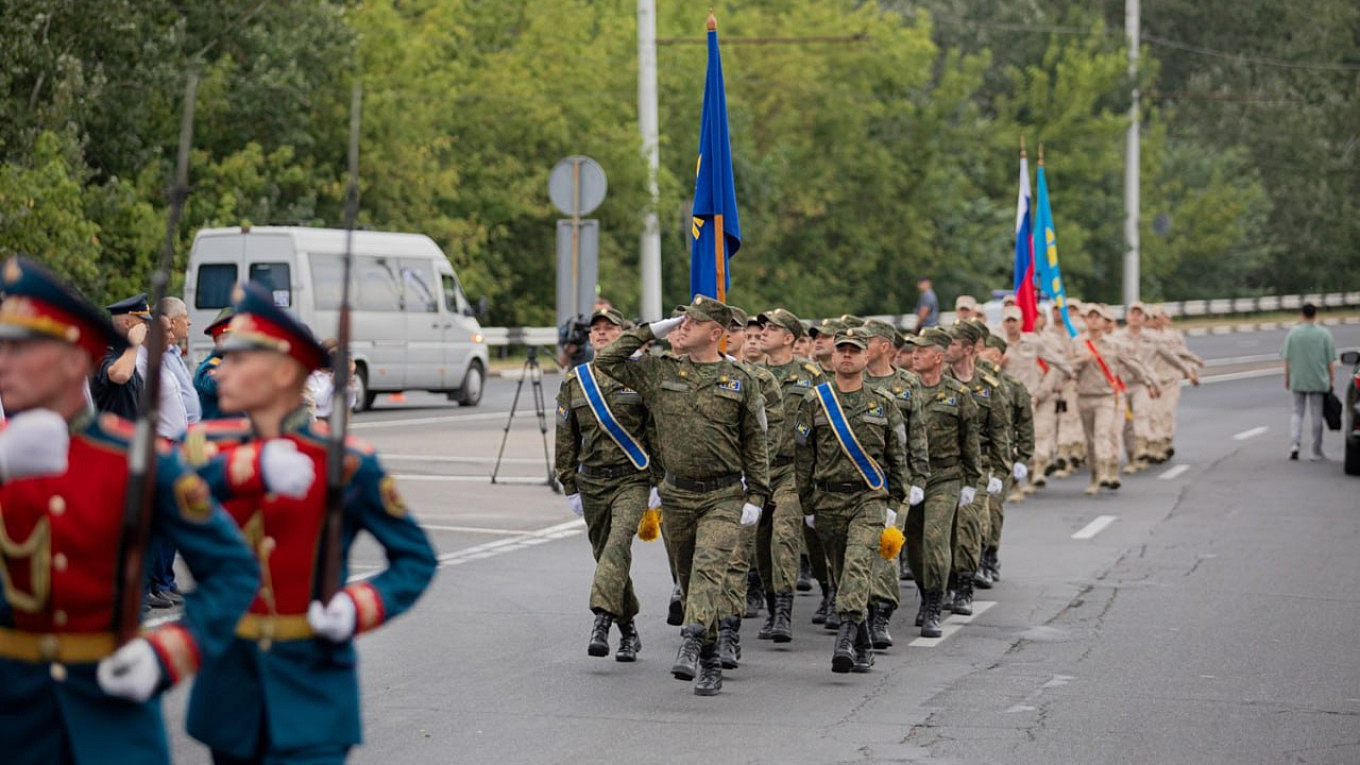Russia is aiming to send an additional 10,000 troops to the self-proclaimed Moldovan region of Transnistria, as reported by Moldova’s Prime Minister Dorin Recean in an interview with the Financial Times, referencing intelligence assessments.
In his discussion with the FT, published Wednesday, Recean accused Moscow of meddling in Moldova’s upcoming parliamentary elections with the goal of establishing a government favorable to the Kremlin, which would facilitate the influx of more Russian troops into Transnistria.
“This is a significant attempt to weaken Moldovan democracy,” Recean stated. “They seek to strengthen their military presence in the region of Transnistria.”
“With 10,000 additional troops, one can imagine the influence and pressure that would be exerted on southwestern Ukraine,” he explained. “This proximity to Romania, a NATO member, is also a concern.”
Recean noted that in 2024, during a presidential election and a narrowly passed referendum regarding EU membership, Russia invested the equivalent of 1% of Moldova’s GDP on campaigns to extend its influence.
“We remain vigilant because their propaganda and communication strategies are very effective. They are spending significant resources,” Recean remarked to the FT.
“We must enhance our defensive capabilities while simultaneously advancing towards our main goal of EU membership,” he affirmed.
Russia currently has a limited military presence in Transnistria, a narrow strip of land controlled by pro-Russian separatists since the early 1990s, located along Moldova’s eastern border.
Moldova, a former Soviet republic with a population of 2.5 million, has consistently called for the withdrawal of Russian troops from Transnistria, a request supported by a UN resolution from 2018, which has been ignored by Moscow.
Transnistria is landlocked, bordered by Moldova and Ukraine, meaning that any significant reinforcements from Russia would likely necessitate a land corridor — a strategic objective that some Russian military leaders openly considered during the initial phases of the Ukraine invasion.
In February 2024, authorities in Tiraspol, the capital of Transnistria, made a plea to Russia for “protection,” echoing sentiments previously expressed by Russia-backed separatists in Ukraine before the invasion in February 2022.
Russian Foreign Minister Sergei Lavrov has similarly cautioned that Moldova could potentially become “the next Ukraine,” accusing President Maia Sandu of hastily pursuing NATO membership, asserting that Russia would ensure its 220,000 citizens in Transnistria do not fall victim to another “Western endeavor.”
An investigation conducted by the Dossier Center, an opposition-linked investigative organization in Russia, revealed that early in the Ukraine conflict, the Kremlin directed the Federal Security Service (FSB) to explore options for opening a “second front” through Transnistria. The Washington Post corroborated similar reports through independent sources.

